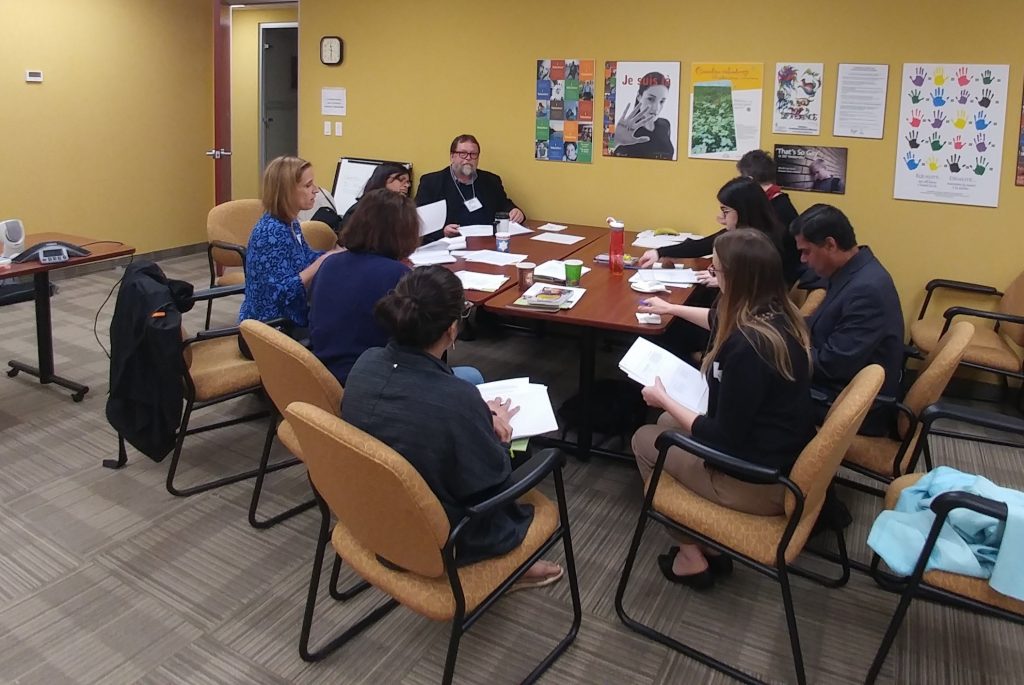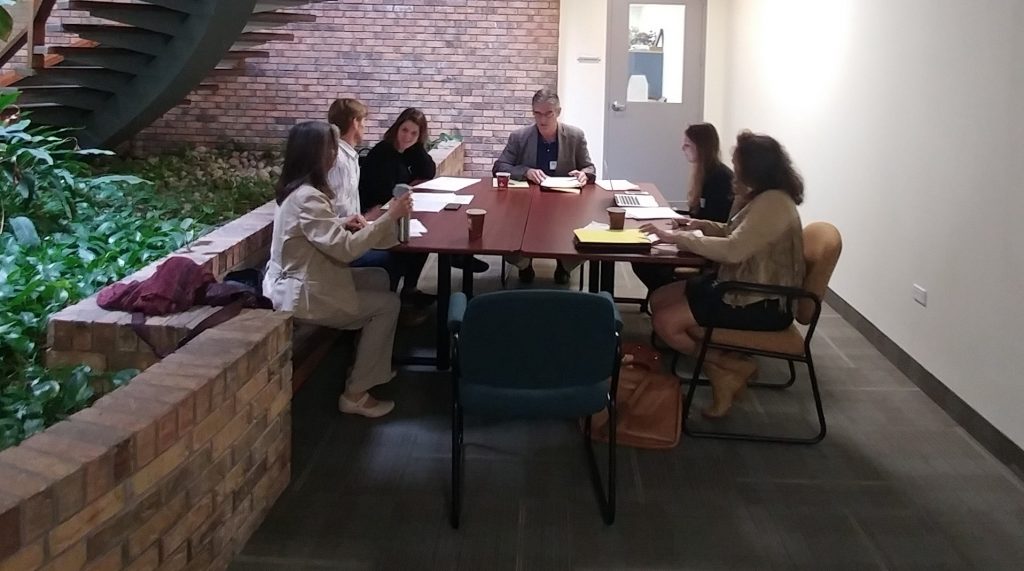The SPNO Planning Team has been developing knowledge products with the goal of sharing them with communities for the purpose of knowledge mobilization. Time was allocated for smaller groups to discuss and give feedback on the products. The SPNO KNSWB Project considers these conversations to be part of the knowledge mobilization process.
Parent Monograph – “Just Because I’m not there Doesn’t Mean I don’t Care!”
Following from an extensive literature review, Yvonne Kelly developed a “Parent Engagement Monograph” which analyzes how current opinions and expectations about parent engagement in education can contribute to the discrimination and exclusion for many families, particularly low-income families. The Monograph is intended to challenge stereotypes and biases towards parents who are not visibly involved, from an educator or school’s point of view, in their children’s learning. The discussion raised a few questions: what does parent engagement really mean, who defines what it is, are educators prepared to engage parents and is teacher education on this issue, a priority? A lot of varying perspectives were shared, considered, accepted and/or rejected. In other words knowledge mobilization occurred in this space and left people with more to think about and question following from the discussion.
The school can make itself more open to families and communities as in the school as a hub model. The Schools Plus Model, used in Saskatoon and Nova Scotia, can be looked at for methods of making schools more welcoming, inclusive and open to community. While this may be the right thing to do, it will not guarantee parents will become involved in their children’s school. It also does not mean that because parents are not involved, that they are not doing their job as parents or that they do not care about education.
“As a racialized person coming from a low-income status – my parents did not and do not trust the system. Many parents just do not want to engage as a result of this distrust, and as a result of a Eurocentric/Western educational pedagogy and curriculum. We need to reteach/unteach pedagogy that is not culturally relevant to our students and families.”
“We’ve got to begin somewhere and I believe that is with school leaders. We need to raise awareness with system leaders.” In relation to challenging negative assumptions and bias towards parents who are not visibly involved in their children’s schools.
Income Disparities: Fees and Fundraising

Dr. Sue Winton engineered this breakout group meeting to be a time for discussion and feedback but also to be a demonstration for how this tool could be used in a community setting. The purpose of this tool is to start a conversation around the inequities that school fees and fundraising creates for many students who are living in low-income households.
This discussion focused on:
- The Learning Opportunity Grants
- The Inequities Perpetuated through School Fundraising
We need to know more about how Learning Opportunity Grants are used in boards to support low-income students.
The majority of people do not know about the inadequacies of the Ontario Funding Formula and the potential problems that come along with growing reliance on fundraising to either close gaps or enrich students’ experiences. For example, many parents do not know that they should not have to raise money to buy textbooks. Inequities lead to widespread discrepancies in terms of student experiences. For example:
Great playground equipment may not be essential but when some schools have only the basics and others can afford all the extras, then there is growing disparity between educational experienced. We need to raise the bar for Everyone.
Provincial Education Charter for Low-Income Students and Families

In this session, Peter Clutterbuck presented the concept of a Community Charter as one way of engaging local stakeholders (students, parents, teachers, administrators, education advocates) in discussions on how to create an inclusive education system, more responsive to the needs of low-income students. The discussion centered on adapting a tool used in another SPNO Project on social and economic inclusion in 2004-05, called Closing the Distance. In this exercise a line of inquiry is followed in discussing the lived experience of a particular marginalized population in the community that:
- Describes the realities of exclusion in the lived experience of the group
- Identifies the sources of exclusion
- Frames indicators or benchmarks of inclusion
- Suggests action to remove excluding conditions and create inclusion
Workshop participants thought that this line of inquiry could be adapted for our use in the KNSWB Project, generating the “realities of lived experience” and the “sources of exclusion” with students and parents. This data could be then be used to identify indicators of inclusion and actions that should be taken to create more inclusive and equitable schools.